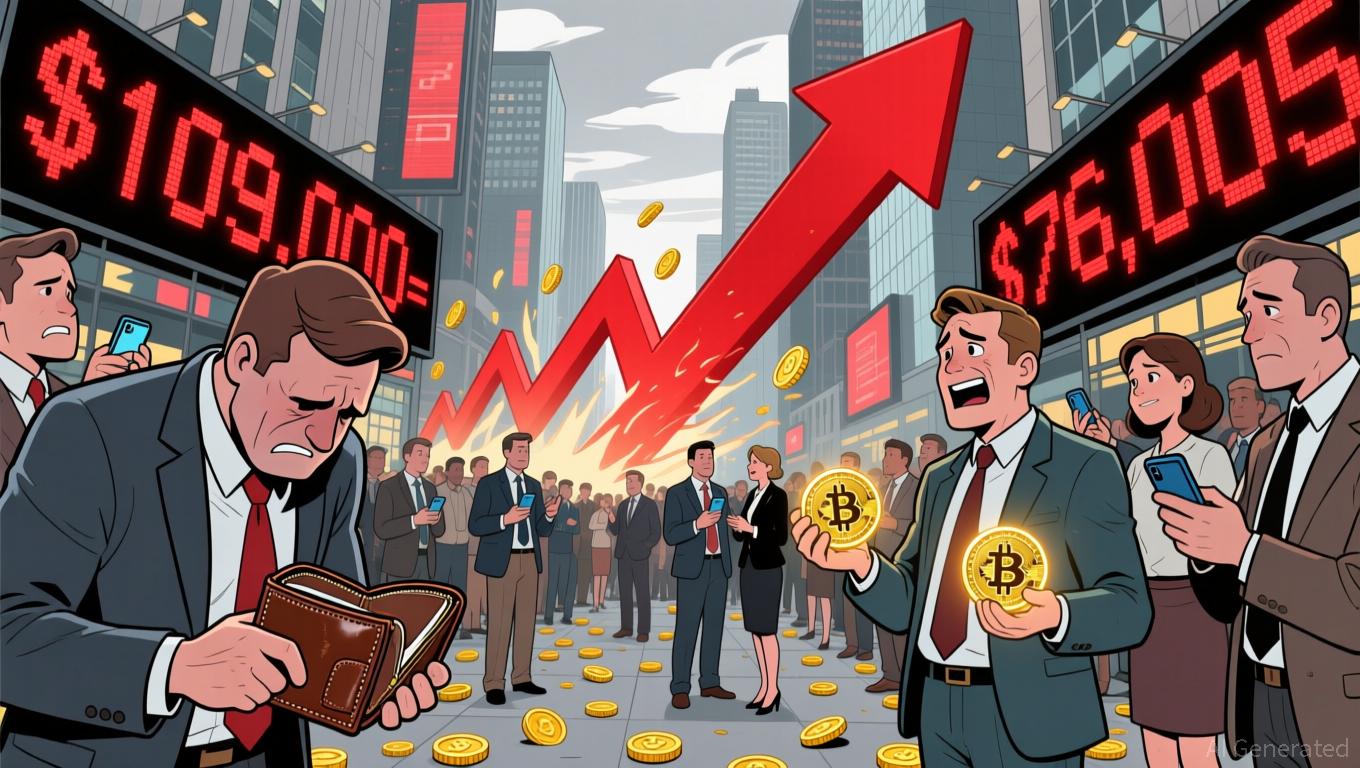Brazil’s Crypto Clampdown: Battling Tax Dodging or Driving a Decentralized Migration?
- Brazil's tax agency mandates foreign crypto exchanges and DeFi platforms to disclose user transactions under 2026 rules aligned with OECD's CARF framework. - New requirements target R$35,000+ monthly crypto activities, including stablecoin transfers, to combat $30B annual tax losses from unregulated digital asset flows. - Critics warn rules may drive users to untraceable decentralized platforms while political debates emerge over crypto tax exemptions for long-term holders. - Brazil will share crypto tra
Brazilian Tax Authority Strengthens Crypto Disclosure Rules, Focusing on Overseas Exchanges and DeFi
Brazil’s Federal Revenue Service has announced significant changes to its cryptocurrency reporting regulations, now requiring foreign exchanges and decentralized finance (DeFi) platforms to report transactions involving Brazilian clients. These regulations, which will take effect in 2026, bring Brazil in line with the Organisation for Economic Co-operation and Development’s (OECD) Crypto-Asset Reporting Framework (CARF). The aim is to reduce tax avoidance and improve monitoring of international digital asset transactions. According to the revised guidelines, both individuals and organizations must declare crypto dealings that surpass R$35,000 ($6,300) per month, covering activities on both centralized and decentralized platforms, including airdrops, staking, and stablecoin movements.
The new measures also apply to international exchanges operating within Brazil, obligating them to provide user transaction records to the tax authorities.

Political friction has surfaced as lawmakers question the new tax structure.
These adjustments come as Brazil adopts CARF, the international standard for tax data sharing.
Industry analysts suggest that this regulatory shift could transform Brazil’s crypto market.
With these regulations taking shape, Brazil’s crypto industry is preparing for a period of transition.
Disclaimer: The content of this article solely reflects the author's opinion and does not represent the platform in any capacity. This article is not intended to serve as a reference for making investment decisions.
You may also like
Bitcoin Updates: Bitcoin Drops 25% While ETFs Remain Stable, Underscoring Confidence from Institutions
- Bitcoin fell to $82,605 in Nov 2025, mirroring FTX-era losses with STHs holding 2.8M BTC at a loss. - ETF assets remain stable despite 25% price drop, showing institutional confidence amid retail distress. - Market corrections erased $120B in value, pushing total crypto cap below $2.8T as analysts warn of further declines. - Weak U.S. employment data and fading Fed rate cut hopes exacerbate fears of a potential $75K price target.

Abu Dhabi sovereign fund quintuples Bitcoin investment

Analysts Debate the Next Moves for BTC, Lower High or Lower Lows Ahead?

Bitcoin falls to $82,000, triggering nearly $2 billion in leveraged liquidations
